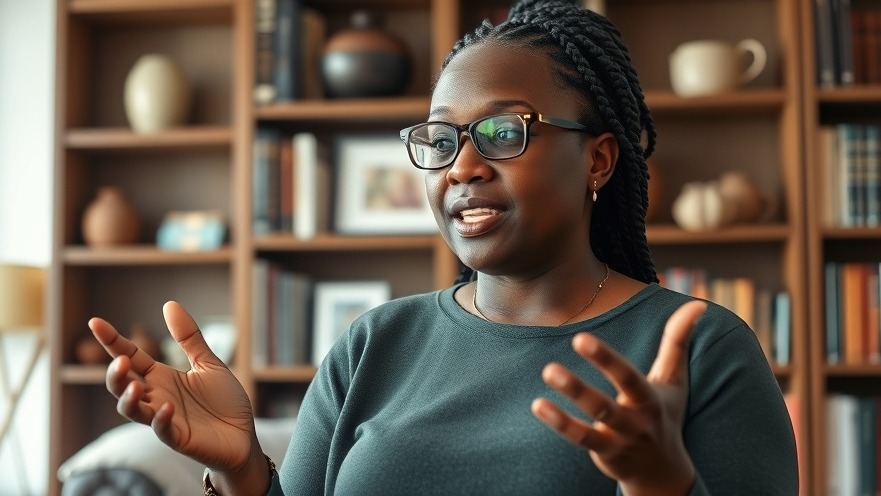
The Surprising Link Between Vitamin D and Hair Health
When it comes to hair loss, many factors can come into play, such as genetics, hormonal changes, and diet. However, a growing body of research suggests that vitamin D, a nutrient commonly associated with bone health and immunity, may also play a crucial role in hair growth. In this article, we will explore how low levels of vitamin D might contribute to hair loss and what you can do to address this issue for better overall health and wellness.
In 'Low Vitamin D = Hair Loss?', the discussion highlights the connection between vitamin D levels and hair health, prompting us to dive deeper into the implications for overall wellness.
Understanding Vitamin D's Role
Vitamin D is vital for various bodily functions, including the absorption of calcium and phosphorus, which are essential for maintaining strong bones. However, it also has an important role in skin health, promoting the growth and repair of hair follicles. Studies have shown that individuals with alopecia, a condition causing hair loss, often have lower levels of vitamin D compared to those with a full head of hair.
Vitamin D Deficiency: A Hidden Epidemic
According to the World Health Organization, approximately 1 billion people worldwide are vitamin D deficient. This deficiency can occur for various reasons, including lack of sun exposure, poor dietary intake, and certain medical conditions. Many people do not realize that a deficiency in this essential vitamin can negatively impact their hair health.
How Low Vitamin D Levels Affect Hair Growth
Research indicates that vitamin D plays a significant role in the hair growth cycle, particularly in transitioning hair follicles from a resting state to a growth phase. When vitamin D levels are low, this transition may not occur effectively, leading to hair thinning or shedding. Not only does vitamin D stimulate the production of new hair follicles, but it also helps regulate the growth of existing ones.
Signs You Might Be Deficient in Vitamin D
If you're experiencing hair loss, it’s important to consider whether low vitamin D levels could be a contributing factor. Some common signs of vitamin D deficiency include:
Fatigue or weakness
Frequent infections or illnesses
Persistent muscle pain
Depressed mood or mood swings
These symptoms can indicate that your body is lacking this crucial nutrient, and it's worth discussing with your healthcare provider.
Tips for Boosting Vitamin D Levels Naturally
Fortunately, there are several effective ways to increase your vitamin D levels naturally, which may, in turn, help with your hair health. Here are some tips:
Sun Exposure: Spend 10 to 30 minutes in the sun a few times a week, allowing for direct sunlight on your skin. This prompts your body to produce vitamin D naturally.
Food Sources: Incorporate foods rich in vitamin D into your diet, such as fatty fish (salmon, mackerel), egg yolks, and fortified dairy products.
Consider Supplements: If you’re unable to get enough vitamin D through sunlight or diet, consider speaking to your doctor about supplementation.
Consulting with Healthcare Professionals
If you're concerned about hair loss and suspect that it may be related to low vitamin D levels, it’s best to consult with a healthcare professional. They can conduct a simple blood test to determine your vitamin D levels and recommend appropriate measures based on your individual needs.
Embracing a Healthier You
Understanding the relationship between vitamin D and hair health can empower you to take proactive steps for your well-being. Whether it's through dietary changes, increased sun exposure, or professional guidance, making small adjustments can lead you toward healthier hair and improved overall health.
By prioritizing your vitamin D intake, you may not only see benefits for your hair but also for your overall mood and energy levels. So, be proactive and take charge of your health!
 Add Row
Add Row  Add
Add 




Write A Comment